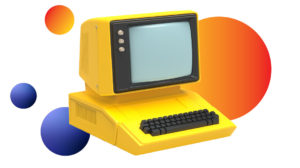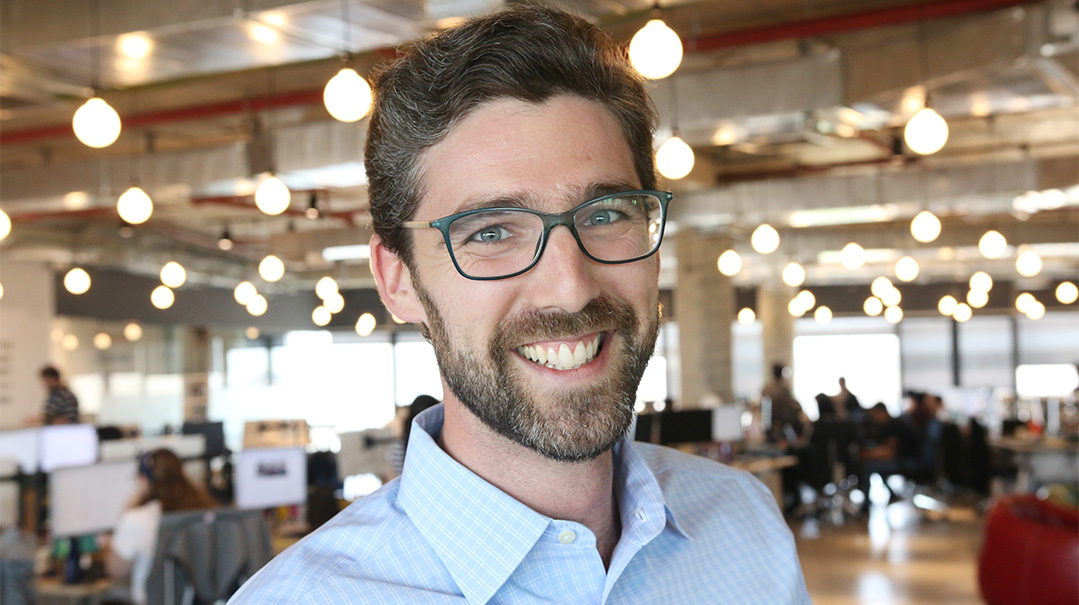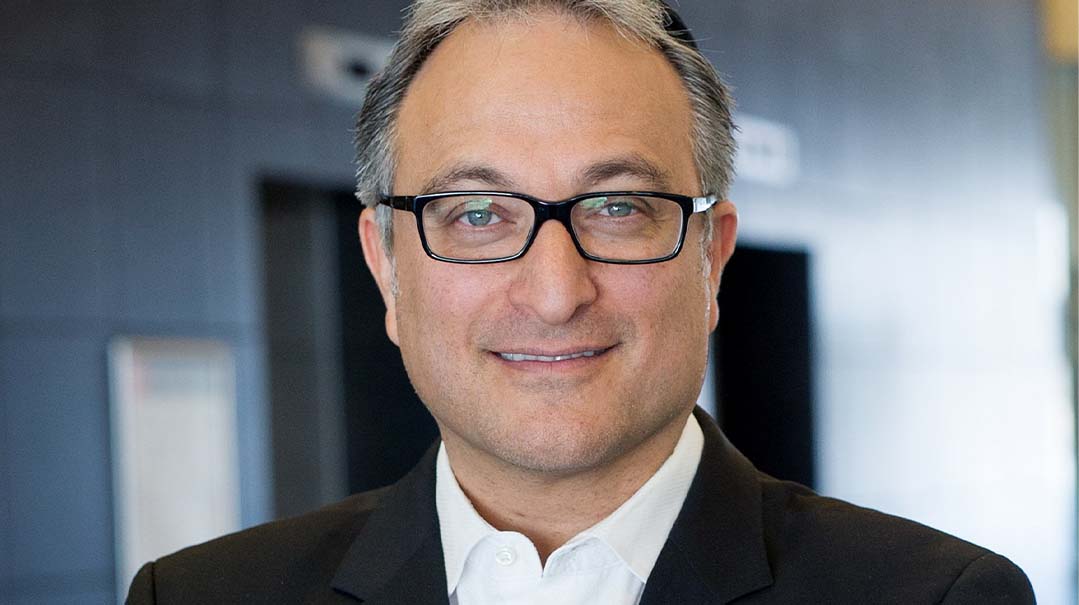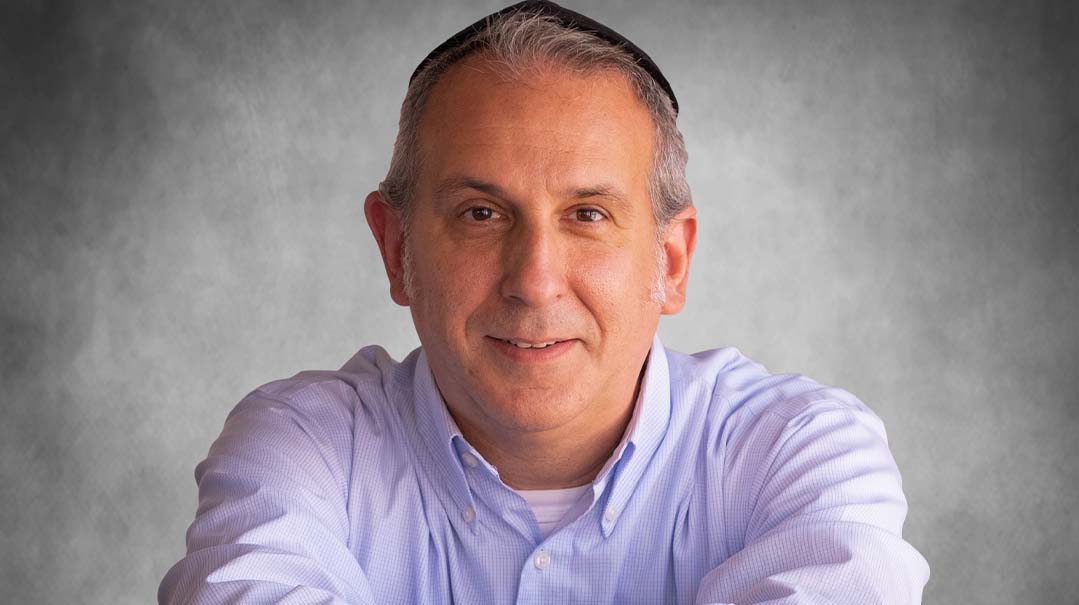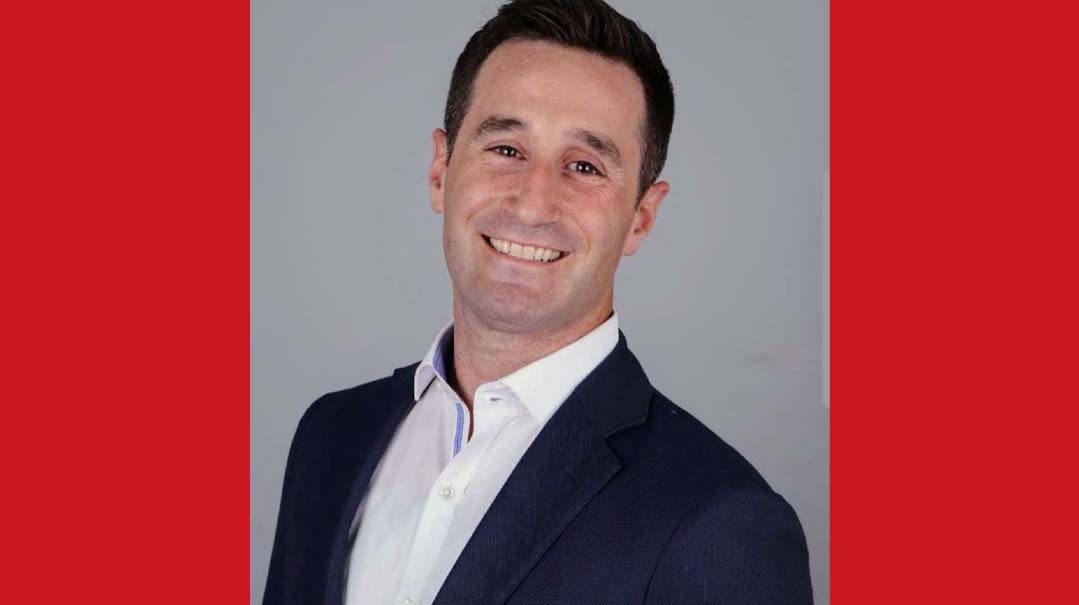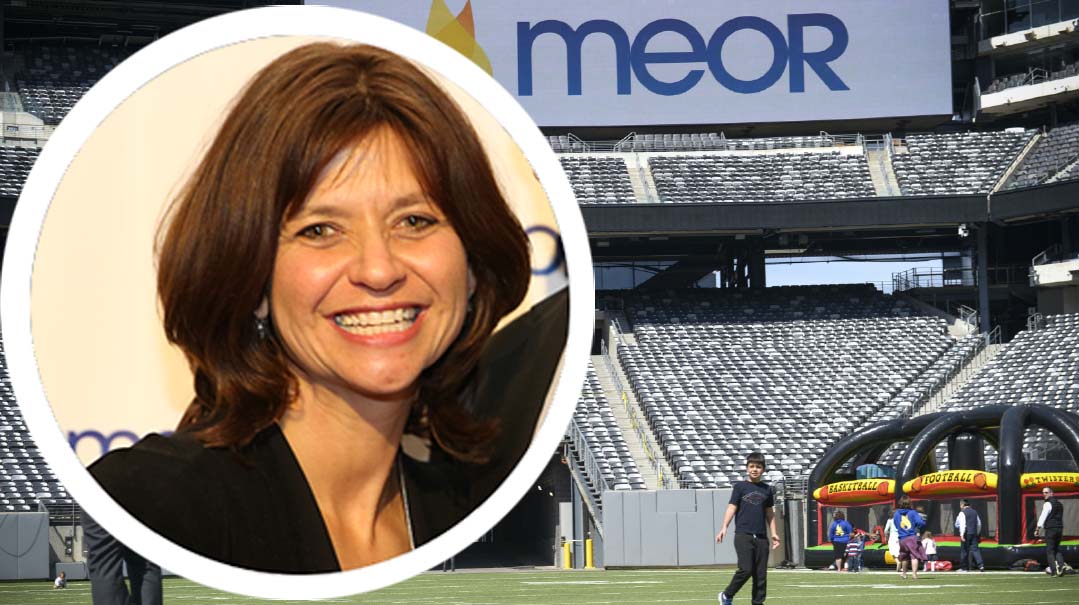Work/Life Solutions with Mois Navon

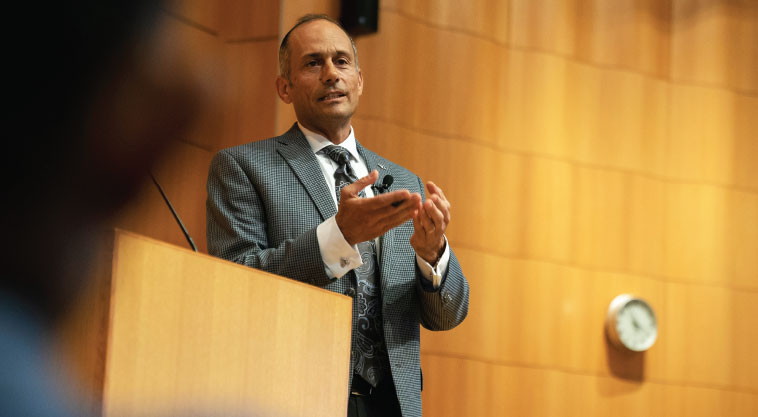
Who
Mois Navon is a founding engineer at Mobileye (acquired by Intel for $15.3 billion) and the brains behind their EyeQ chip powering self-driving vehicles.
What
Mois’s experience in research and development of digital hardware spans 35 years, a handful of impressive patents, and work at notable companies in the US and Israel, including NASA’s Jet Propulsion Lab and IBM.
Where
Raised in Los Angeles, Mois studied engineering at UCLA before getting married and moving to Israel. He learned at various yeshivos, including the Bostoner yeshivah in Har Nof, and received semichah from Rav Zalman Nechemia Goldberg and the Rabbanut (all while working at Mobileye).
Why
As if developing self-driving cars wasn’t cool enough, I was blown away by Mois’s commitment to learning and teaching Torah — which includes a 16-year run of weekly shiurim at Mobileye, a daily halachah, and a devar Torah at every company meeting — no wonder he was called “the Rabbi of Mobileye.” Mois and I met last summer, when we were both teaching on an NCSY summer program, and I’m super excited to share his story and insights with you.
1 of 9 — What opportunities or personalities played a role in your career?
There were multiple opportunities — I’ll share two.
- In 1992 my wife and I decided to move to Israel. I started to look for a job there while still in L.A., but to no avail. I was at an impasse and I remember sitting in my car, looking up and saying, “G-d, get me outta here!”
Within 48 hours, an Israeli colleague who worked for Rafael (the Israeli defense company behind the Iron Dome) put a fax on my desk announcing that IBM Israel was coming to L.A. to interview for engineers. I was astounded — I hadn’t told anyone about my plans to move. “Why did you give me this?” I asked him. “Stam (no reason),” he responded. Within months, I had moved to Israel to work for IBM.
- In 1995, a friend of mine told me, “Mois, you’ll never make it as an engineer unless you work for a start-up and get stock options.” In 2000, with Internet start-ups popping up practically every day, I saw an opportunity to put this piece of advice into action. I found a job with an Internet company that indeed gave me a lot of stock options.
The company had funds for one year, with plans to get further funding from the Nasdaq the next year. But there was no “next year” for Internet companies. The “dot-com boom” became the “dot-com bust,” and I was on the street. It was the low point of my career, but I said what Rabi Akiva said in times like this: “Everything Hashem does is for the good.” For me, this means realize that there are things bigger than you, that you don’t always know what’s going on. It means pick up the pieces and move on, with faith that there is a reason.
With that, I started interviewing. I got a few offers from Internet-related companies, but I had been burned by the Internet and learned that lesson. Nevertheless, I still wanted a start-up. While networking with friends, someone mentioned to me that a former colleague of mine was at a start-up in a house in Ramot, working on something in “automotive.” It sounded promising and I became one of their first employees. Sixteen years later, that little automotive start-up — called Mobileye — made the biggest exit in Israeli history. Gam zu l’tovah!
I guess you could say that opportunities are from Heaven, but it is incumbent upon us to act on them.
2 of 9 — Which three character traits have played a key role in your career path?
Goal-oriented, persistent, passionate.
To accomplish anything, you need to set goals: big goals and little goals, long-term goals and short-term goals. Furthermore, when you set a goal, you have to realize that it’s going to take effort — lots of effort. That means that you need to be persistent; you have to fight to keep at it. That’s where passion comes in. Being passionate means you really want it. If you’re passionate, everything changes. Passion is empowering.
I have many examples of putting these three things together, but let’s take something close to your hearts: semichah. I always knew I wanted to get semichah, but I didn’t know when and how. I had a family to support, and for me, learning full-time was out of the question. My wife also knew that semichah was a goal of mine and so she was always trying to figure out ways I could do it.
One day she saw an ad for a semichah program held two nights a week, given by Rav Goldenhersh of Har Nof. The ad said, “For people with a significant background in learning.” I didn’t have that, but I did have a goal, and with a lot of persistence and a lot of passion, I made up for the lack of background. I attended the semichah shiur twice a week for six years, never missing a class, all the while working at Mobileye. Every night I stayed up reviewing the shiur, typing in my notes and translating all the sources — Tur, Shulchan Aruch, Shach, Taz — everything, so that I could later review them for my semichah tests.
3 of 9 — What do you do to relax, recharge, or simply have fun? How do you make time for that, and how often?
Relax? The only time I relax — because I have a commandment to relax — is Shabbat. And I do that by taking a nap, because the rest of the time I’m either preparing a shiur or giving a shiur.
Recharge? I guess that happens when I sleep.
Fun? There’s no word in lashon hakodesh for fun, and there’s no word for it in my language either. That doesn’t mean I don’t have what people call “fun,” but I don’t set out “to have fun.”
When I was younger, I did a lot of sports: swimming, biking, volleyball, skateboarding, and surfing. Now, I have “fun” riding my bike, usually between the Gush and Beit Shemesh. But I don’t do it for “fun.” I do it to keep my mind and body healthy so that I can learn Torah. (That said, I must admit that every few years I train for a race to push my limits — as you can see in the photo.)
5 of 9 — If you were granted an extra three hours per day, or a spare million dollars, what would you do with that time or money?
For me, another three hours is just another three hours to do what I’m doing. I would love to have another three hours. I’d learn more; I’d teach more… I wouldn’t do anything different, just more of it.
8 of 9 — Can you share a time when you had to navigate the tension between your deepest values and the business world?
When I first started at Mobileye, the discussion around the lunch table always came back to religion, with the table splitting into two groups: the religious against the anti-religious. But I noticed a third group — those who knew nothing about Judaism. They simply watched the arguments bounce back and forth like a ping-pong ball. It was these guys who interested me. How could it be that they knew nothing of their own Judaism? I proposed that we have a basic Judaism class once a week. And so it was, while everyone else ate in the kitchen, three or four of us went to the basement once a week and discussed the first chapters of the Ramchal’s Derech Hashem.
With the company’s growth, we moved out of the house and into an office building. The first thing I did in our new space was look for a conference room for my shiur. When I asked the CEO if I could use the room he said, “No, but you can use the cafeteria.” This directive turned out to be both a curse and a blessing. On the one hand, there was a lot of noise and getting a table was difficult. On the other hand, everyone in the company now saw what I was doing, and new people — religious and nonreligious — started coming to my shiur.
My shiur grew from three or four to over twenty people. But now I couldn’t just run open philosophical discussions on Derech Hashem. I had to prepare serious sources that would interest the religious, inspire the secular, and encompass a complete idea each week in case it was the only class someone attended. If you go to my website, www.divreinavon.com, you’ll see over 400 shiurim that I have given at Mobileye.
Incidentally, when I went to ask the CEO about using a conference room, he told me that many people had come to his office and told him to shut me down. To his credit, he told them, “I don’t tell anyone what to talk about over lunch.” But when he told me that, I said to myself: “If I ever get shut down, I’m leaving.” For me, there would be no reason to stay.
When you have to navigate the tension between your values and the business world, you need to know what is the ikar — the main thing — and what is tafel, secondary. I’m not saying that parnassah is not important. I wouldn’t just quit the next day and put myself on the street. But I would look for another job, one where I could fulfill my spiritual goals along with my material needs.
Originally featured in Mishpacha, Issue 736. Moe runs business development for Hometalk, where he spearheaded influencer partnerships that generated 700 million video views. He holds an MBA and semichah, and published his first book, The Gift of Stuttering (Mosaica Press, 2016). He also teaches a daf yomi shiur, produces inspirational videos for Aish.com, and gives lectures to audiences worldwide. Moe lives in Ramat Beit Shemesh with his wife and children.
Oops! We could not locate your form.





